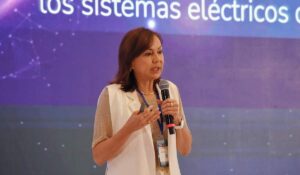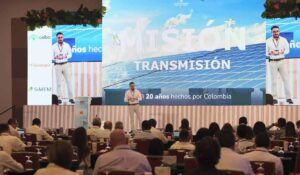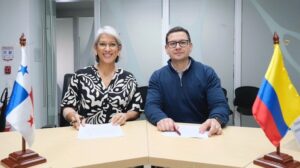Battery storage is a key piece for the success of the transition towards the generation and use of renewable energy in Colombia.
Battery storage is a key component for the success of the clean energy transition because it allows for the stabilization of energy from sources like the sun and wind, guarantees supply when these are unavailable, prevents blackouts, provides reliability to the system, and promotes more competitive tariffs for consumers.
In this context, Colombia has a great opportunity and an urgent challenge to advance the implementation of Battery Energy Storage Systems (BESS). According to SER Colombia (the renewable energy association), the global energy transition demands an unprecedented drive for these systems.
According to the International Energy Agency (IEA), to achieve the goal of tripling renewable energy capacity by 2030, the global storage capacity needs to be multiplied by six, reaching 1,500 GW (gigawatts).
In the country, the path toward the energy transition is progressing slowly, and structural challenges that need to be addressed quickly persist. The massive integration of renewable sources requires solutions that guarantee their availability when nature does not allow it.
“BESS fulfill precisely that function: they store energy during moments of high generation to release it during periods of low production, allowing not only a greater penetration of clean energy into the system but also alleviating transmission grid congestion and offering essential services such as frequency regulation and rapid response to contingencies,” explained Alexandra Hernández, Executive President of SER Colombia.
Challenges in Colombia’s Energy Transition
The energy transition in Colombia requires accelerating the development of energy storage systems, both in combination with generation projects using Non-Conventional Renewable Energy Sources (NCRES) and as independent (standalone) solutions that offer services to the grid.
The integration of both modalities is essential to ensure a more stable, reliable, and cleaner energy matrix.
This need has also been recognized in the XM Roadmap for the Energy Transition, which highlights the essential role of storage in enabling the massive incorporation of renewable energy, managing its variability, and strengthening system reliability.
Furthermore, the Master Plan for the Modernization and Expansion of Electric Transmission Infrastructure, prepared by the UPME this year, explicitly recognizes the role that storage systems can play in the face of growing challenges to the electrical system, stemming from both increased demand and restrictions on expanding transmission infrastructure.
BESS, being flexible and quickly implementable solutions, represent an efficient alternative to traditional projects that often take several years to materialize.
However, despite its potential, Colombia still lacks a regulatory framework that allows for its large-scale development.
The initial step was CREG Resolution 098 of 2019, which defined mechanisms to incorporate storage systems into the transmission grid. Thanks to this, the only storage project currently under development in the country, SAEB La Arenosa S.A.S. E.S.P., was awarded.
Nonetheless, this regulation expired in December 2022. Since then, Colombia has lacked a current regulatory framework to enable the development of new projects of this kind.
For Alexandra Hernández, the situation requires urgent attention: “We must accelerate decisions that are fundamental to ensuring the reliability of the Colombian electrical system. The entry of renewable energy projects must be complemented with storage; companies are interested, but regulatory conditions are required for their financial closure and operation.”
She added, “It is necessary to reestablish, improve, and complete the regulatory framework that enables these initiatives, encouraging their participation in the market and facilitating their connection to the system.”
In addition to reinstating the guidelines of CREG Resolution 098, SER Colombia proposes incorporating key adjustments learned from the La Arenosa pilot project, such as greater flexibility in commercial operation dates, adjustments to the methodology for determining the value of guarantees, and adequate remuneration schemes, among others.
Furthermore, the guild emphasized the urgency of establishing a remuneration framework for the complementary services that these technologies can provide to the electrical system, such as primary, secondary, and tertiary frequency regulation, voltage control, and other operational support.
The guild stressed that Colombia is at a decisive moment: the window of opportunity to consolidate its leadership in renewable energy in Latin America will not be open forever. Without clear and current regulation to facilitate the development of storage systems, the country risks limiting its own capacity for energy transformation.
“It is time for energy storage to take its rightful place in the country’s energy future,” Hernández concluded.
Source: Energía – valoraanalitik








